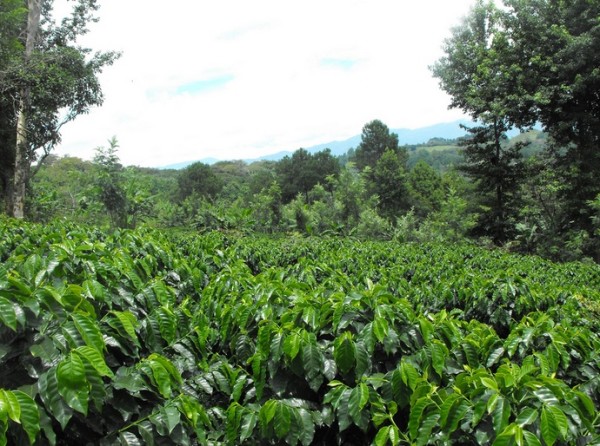by Michael Sheridan of CRS Coffeelands Blog
Coffee Review co-founder and specialty coffee pioneer Kenneth Davids opened the 2013 edition of Let’s Talk Robusta with a tour-de-force keynote address during which he exposed “The Robusta Myth” in the U.S. specialty marketplace, offered his own “Robusta realities,” and advocated forcefully for more sensory exploration of a coffee we still don’t really know.
THE ROBUSTA MYTH
Davids considers a myth to be an unconscious “truth” that rests on assumptions that are mostly unexamined and often deliberately constructed. He sees mythmaking as an essential part of branding. And he suggests that as specialty coffee’s intellectual authors began building the specialty brand decades ago, Robusta was a perfect “sensory bogeyman”—a useful foil for roasters trying to distance themselves from the pack with promises of 100% Arabica coffee. Unfortunately for its growers and advocates, Robusta remains trapped today by the power of that myth.
THE ROBUSTA TRAP
Davids identifies four elements of the original specialty coffee value proposition:
- Fresh roasting
- Bulk sales of whole bean coffee
- Coffee identified by origin and grade
- 100% Arabica
He says that as specialty coffee’s biggest brands began to grow, they quickly abandoned the first two of these propositions, which are ill-suited for far-flung café chains or non-café distribution channels. That leaves the 100% Arabica conceit as one of the few remaining differentiators of the specialty brand. Specialty coffee has, in effect, painted itself into a corner. Even if they wanted to begin experimenting with Robusta, Davids argues, specialty roasters can’t because they have spent the better part of three decades defining themselves against it.
But Robusta is not just trapped by the specialty segment that shuns it. It is also importantly trapped by the industrial supply chains that rely on it. Davids argues that Robustas are cheap and poorly prepared because they are expected to be cheap and poorly prepared. Indeed, industrial coffee chains depend on it being brought to market in that way.
In sum, Robustas are hemmed in, caught between a specialty market whose no-Robusta stance is one of its defining characteristics and a coffee industrial complex that depends on a vast supply of cheap, low-quality coffee.
TRUTHS ABOUT ROBUSTA
Davids counters the Robusta myth with three “Robusta realities,” the first two of which he voices with considerably more confidence than the third.
- There is a wide range of Robustas on the market today, ranging from lots that are perfectly prepared with no primary and few secondary defects, to lots with hundreds of defects. Most people only know Robustas closer to the latter.
- Even the best-prepared Robustas can’t match the finest Arabicas for complexity.
- The best bet for Robustas in the specialty market is probably in espresso preparation.
WHITHER ROBUSTA?
Davids is keen to note that he is not looking to rebrand Robusta as specialty. He is merely interested in unbranding it so that we can get to know its full range of sensory possibilities—something that the Robusta taboo has kept specialty from doing with the same passion with which it has revived heirloom cultivars and experimented with special post-harvest processing.
Although it may seem ironic, Davids feels that the “wonderful, wildly inventive” small roasters that comprise the “third wave” of coffee may be the ones to blow the lid off the “conceptual box” in which Robusta has been trapped. He believes that they are the true heirs to the specialty coffee tradition, which has always been about differentiation, and may find in Robusta that is carefully sourced, artfully roasted and skillfully blended a new source of differentiation in a marketplace crowded with quality-obsessed roasters.
For more Ken Davids perspectives on Robusta, read this blog post he published from El Salvador immediately following the event.
– – – – –
ABOUT LET’S TALK ROBUSTA
CRS has collaborated with Sustainable Harvest over the past two years to create an annual workshop series on fine Robusta offered during the yearly Let’s Talk Coffee event. The result, Let’s Talk Robusta, has generated plenty of buzz and lots of enlightenment through its first two years. Sprudge provided excellent coverage of the 2012 event in Colombia, which brought together some of the biggest names in Robusta to introduce the specialty community to “the other coffee” through lectures and a fine Robusta cupping. The 2013 edition of Let’s Talk Robusta in El Salvador was bigger and better than its predecessor, from with the provocative opening statements of The Coffee Review co-founder and specialty coffee pioneer Kenneth Davids all the way through to the fine Robusta tasting that closed the event.
Michael Sheridan
Michael Sheridan is the Chief Executive Officer of the Coffee Quality Institute, a nonprofit organization with a mission to improve coffee quality and the lives of those who produce it. Sheridan has been leveraging market forces to make coffee work for smallholder farmers and farm workers since 2004. Most recently he directed progressive green coffee sourcing activities and direct-trade partnerships at Intelligentsia Coffee. Prior to that he worked to deliver initiatives in the coffee sector in Central and South America on behalf of Catholic Relief Services.







Comment